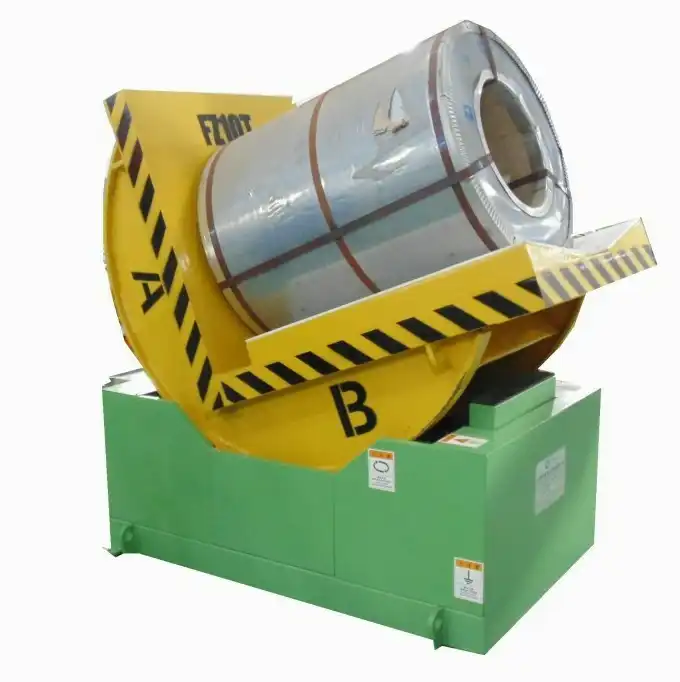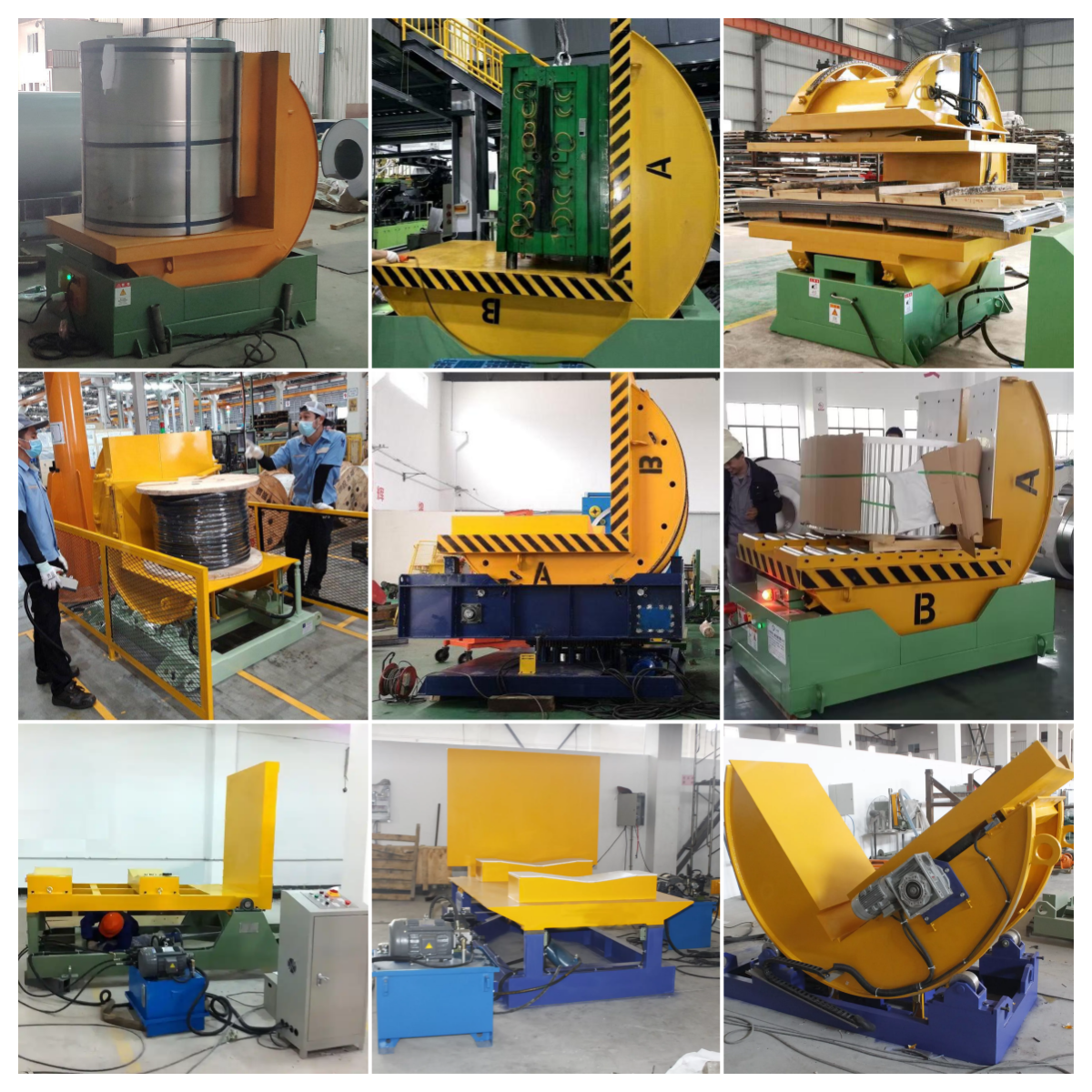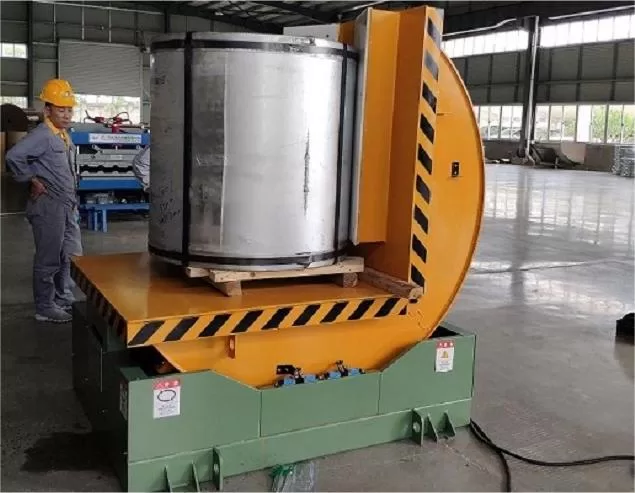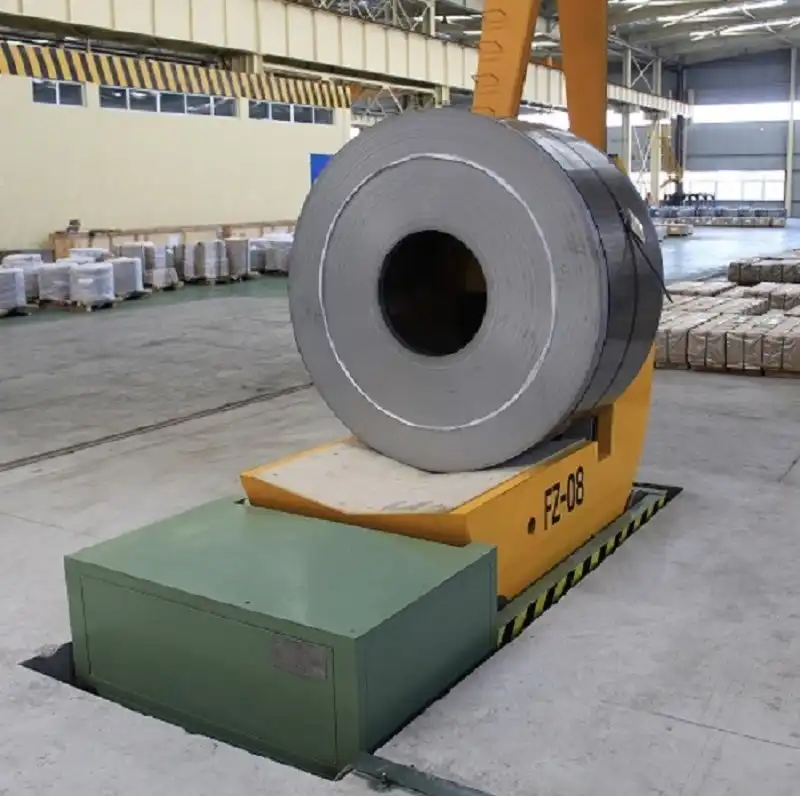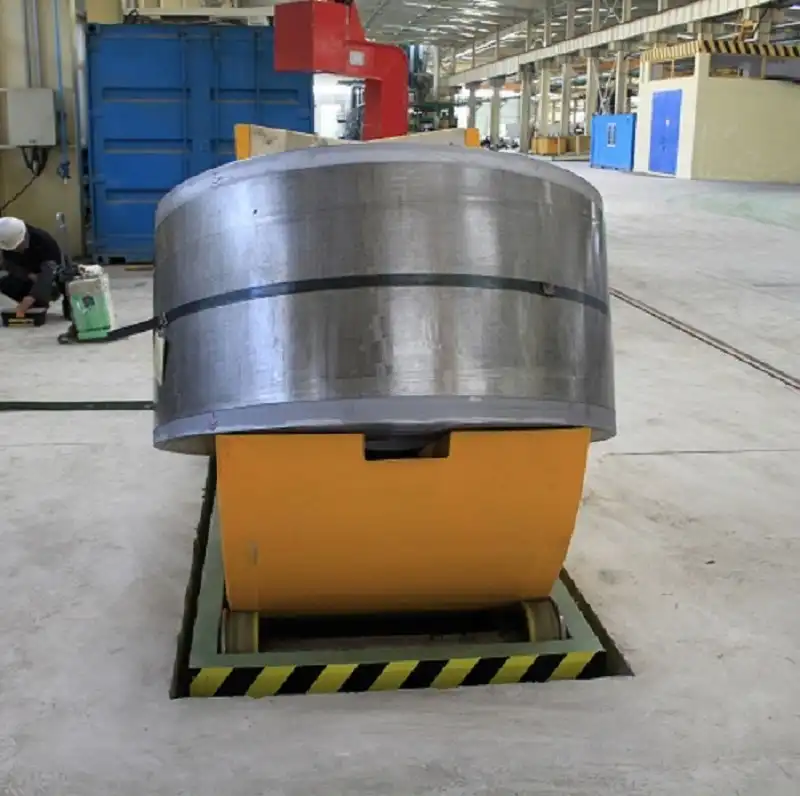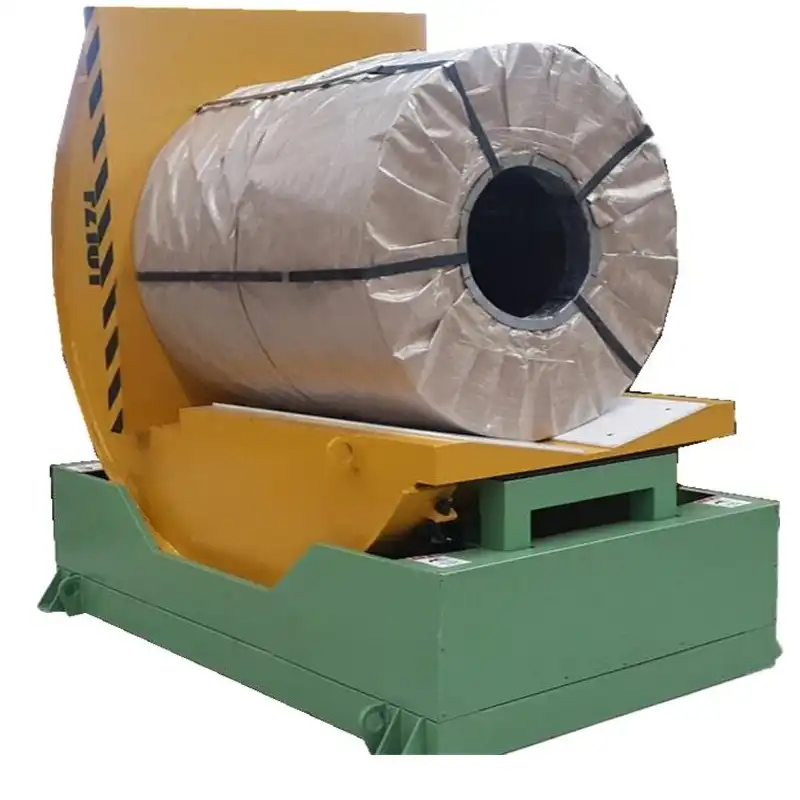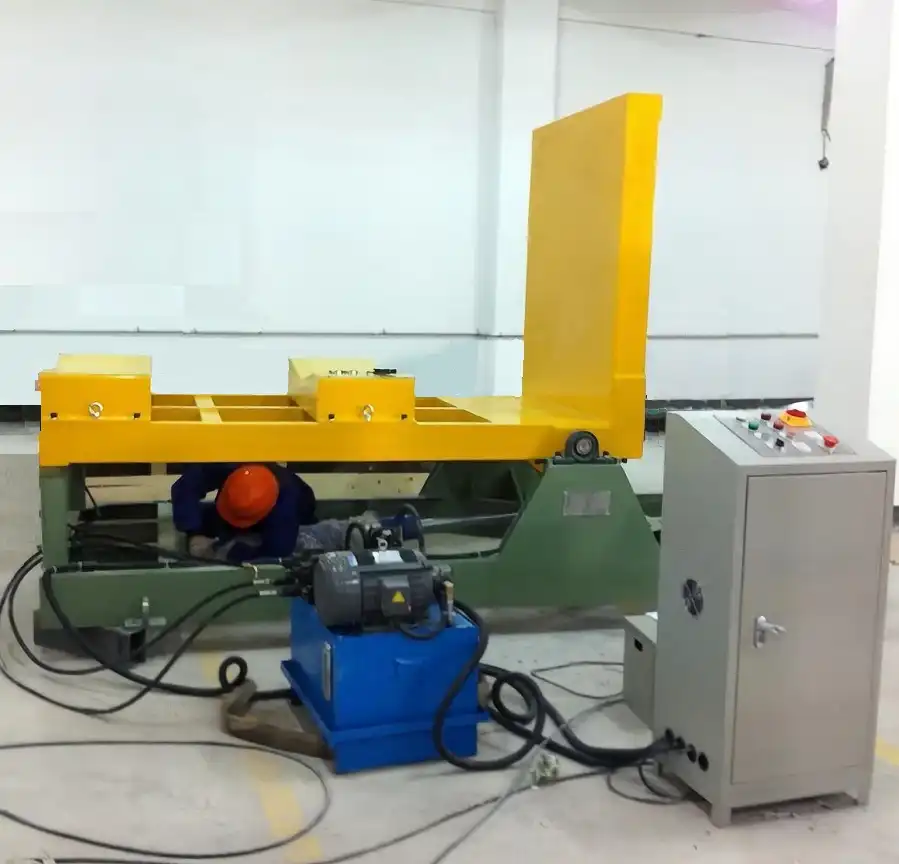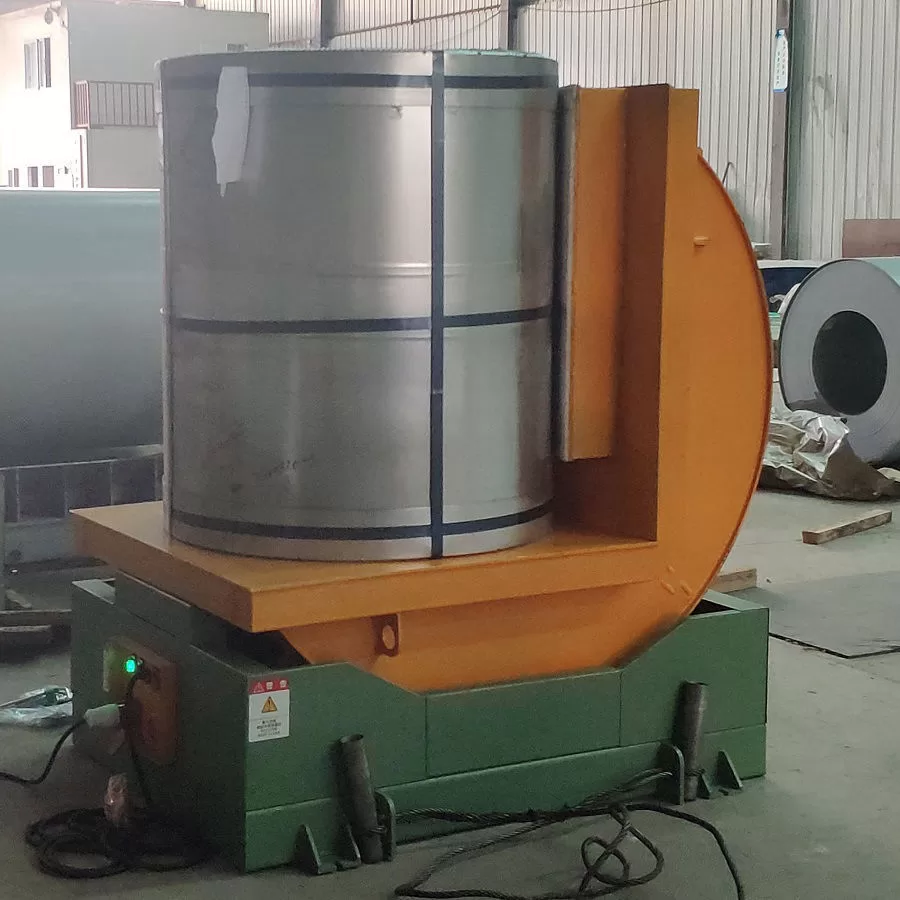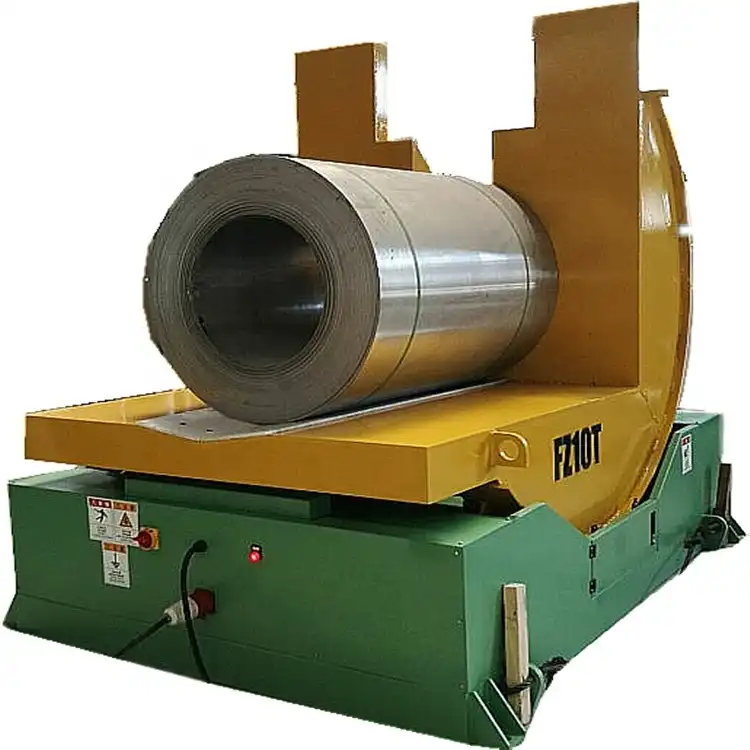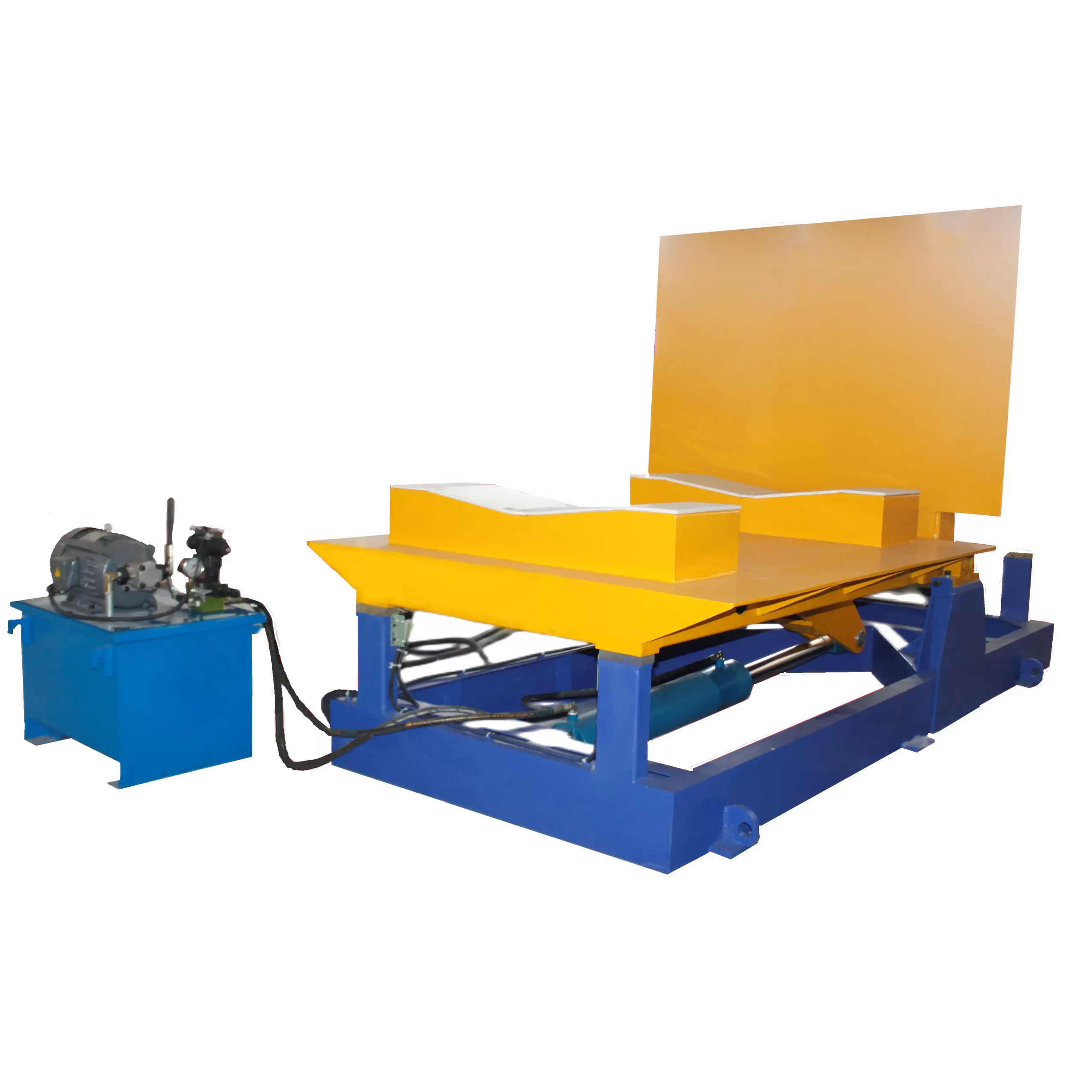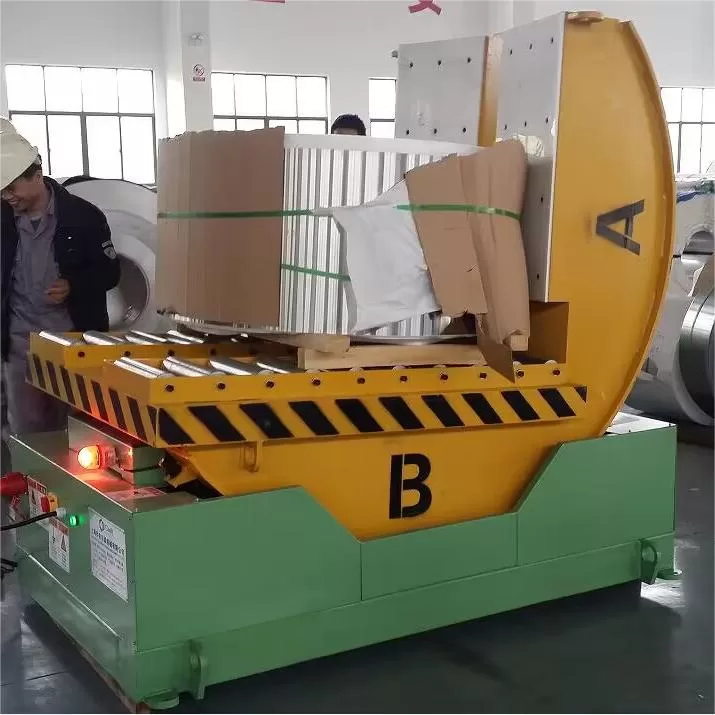Industry Case Study Comparison: How Motor Shaft Upenders Improve Efficiency Across Sectors
Introduction
In modern manufacturing and heavy industries, handling large and heavy components like motor shafts requires specialized equipment that prioritizes both safety and efficiency. One such essential tool is the motor shaft upender—a machine designed to flip, rotate, or reposition shafts in a safe, controlled manner. From automotive plants to heavy equipment manufacturing and energy sectors, motor shaft upenders are making a significant impact on operational productivity.
This article provides an in-depth comparison of case studies across various sectors to illustrate how motor shaft upenders are improving efficiency and reducing operational risks. We will explore specific examples from key industries, analyze the benefits, and examine how this technology is transforming production lines by minimizing downtime, enhancing safety, and reducing labor costs.
1. What is a Motor Shaft Upender?
Understanding the Basics
A motor shaft upender is a specialized piece of equipment designed to flip or tilt heavy motor shafts from a horizontal to a vertical position or vice versa. These machines are engineered to handle motor shafts of varying sizes and weights, ensuring they are rotated or flipped with precision and care. Upenders are equipped with safety mechanisms such as automatic clamping systems, load sensors, and programmable controls that make the process not only efficient but also highly safe.
Why Are They Essential?
Motor shaft upenders are crucial for industries that deal with large, cumbersome components, particularly when frequent repositioning is required during production, maintenance, or shipping. Manual handling of heavy shafts can result in accidents, damage to the parts, and significant delays in production. By automating the tilting process, motor shaft upenders reduce the risk of human error, prevent workplace injuries, and increase overall efficiency.
2. Automotive Industry: Reducing Downtime and Enhancing Safety
Case Study: Motor Shaft Upenders in an Automotive Plant
In the automotive sector, the use of motor shaft upenders has transformed how manufacturers handle components. One case study from a large automotive plant in Germany revealed significant gains in efficiency when they implemented motor shaft upenders for repositioning heavy drive shafts and engine components.
Previously, the plant relied on cranes and manual labor to rotate and flip motor shafts during the assembly process. This not only posed a safety hazard to workers but also caused frequent bottlenecks on the production line. With the integration of motor shaft upenders, the plant saw:
-
A 40% reduction in downtime due to faster flipping and repositioning of shafts.
-
Improved worker safety, as the machine minimized the need for manual handling.
-
Increased production throughput, allowing the plant to meet higher demand without additional labor.
Efficiency Gains
The automated flipping process enabled by the motor shaft upender eliminated the delays caused by cranes, while its built-in safety features reduced workplace injuries. Workers were able to focus on more value-added tasks, further streamlining the assembly line.
3. Heavy Equipment Manufacturing: Handling Larger Loads with Precision
Case Study: Heavy Equipment Sector Adopts Upenders
In the heavy equipment manufacturing industry, where oversized motor shafts are common, motor shaft upenders have proven to be indispensable. A U.S.-based construction equipment manufacturer found that using upenders to handle the positioning of motor shafts for large earthmoving equipment resulted in significant operational improvements.
Prior to the use of upenders, the company struggled with frequent equipment damage and worker fatigue due to the size and weight of the shafts. The upender's ability to handle large loads with precision led to:
-
Reduced equipment damage by ensuring proper alignment during flipping.
-
30% improvement in production time due to faster and more controlled shaft handling.
-
Lower labor costs, as fewer workers were required to manage the repositioning tasks.
Maximizing Precision
The precision controls on the motor shaft upender allowed for better handling of oversized parts, which reduced the risk of damage. This was particularly important in this industry, where misalignments or improper handling could lead to costly repairs or delays in production.
4. Energy Sector: Supporting Large-Scale Operations
Case Study: Motor Shaft Upenders in Power Plant Operations
In the energy sector, motor shaft upenders are used extensively in the production and maintenance of turbines and generators. A major power plant in the U.K. integrated upenders to handle the assembly and maintenance of turbine shafts, which can weigh several tons.
Previously, the plant had to rely on multiple workers and heavy lifting equipment to reposition the shafts, leading to long setup times and high labor costs. After implementing motor shaft upenders, the plant experienced:
-
A 25% reduction in labor costs, as fewer workers were required for shaft handling.
-
Significant time savings, as upenders allowed faster repositioning during maintenance.
-
Enhanced safety compliance, as the machines reduced the risk of injury from manual handling.
Efficiency in Large-Scale Operations
For energy facilities that handle large-scale operations, the upender's ability to safely and quickly rotate heavy shafts provided a much-needed boost in operational efficiency. The use of motor shaft upenders also contributed to better compliance with safety regulations, as they minimized the risk of workplace accidents.
5. Aerospace Industry: Precision and Safety in Component Handling
Case Study: Motor Shaft Upenders in Aerospace Production
The aerospace industry requires the highest levels of precision when it comes to handling sensitive components like motor shafts for aircraft engines. An aerospace manufacturer in France integrated motor shaft upenders to improve the precision and safety of their production line. This allowed the company to safely flip and rotate shafts without damaging the intricate components involved.
Results of implementing upenders included:
-
Reduced component damage, thanks to the controlled tilting and flipping capabilities of the upender.
-
Improved process control, allowing operators to handle parts with greater precision.
-
Faster production cycles, leading to higher output without compromising quality.
Precision Engineering
For the aerospace industry, where precision and safety are paramount, motor shaft upenders played a crucial role in ensuring that high-value parts were handled with care. The automated nature of the upenders also allowed for consistent results, reducing the risk of errors.
6. Cost Efficiency: Long-Term Financial Benefits
Saving on Labor and Reducing Downtime
One of the most significant benefits seen across industries when using motor shaft upenders is the long-term cost savings. By reducing manual labor, cutting down on production delays, and preventing equipment damage, companies are able to:
-
Lower labor costs by automating a process that traditionally required multiple workers.
-
Avoid production delays caused by inefficient handling methods.
-
Decrease the risk of workplace accidents, which reduces insurance premiums and compensation costs.
For example, in a heavy machinery manufacturing plant, the total cost savings over a year from using motor shaft upenders amounted to over $100,000, primarily due to reduced downtime and labor costs.
7. Safety Standards Across Sectors
Enhancing Workplace Safety
Safety remains a top priority in any heavy-duty industrial environment, and motor shaft upenders are designed with safety in mind. Across all case studies, companies reported:
-
Fewer workplace injuries, thanks to the automated, hands-off approach to flipping and rotating motor shafts.
-
Improved safety compliance, as upenders are often built to meet or exceed industry safety standards like OSHA guidelines.
-
Reduced fatigue among workers, who no longer need to manually handle heavy components.
Built-In Safety Features
The safety features integrated into motor shaft upenders, such as automatic clamping systems and emergency stop functions, make these machines essential in environments where worker protection is critical.
8. Conclusion: The Future of Motor Shaft Handling
Across various industries—whether it’s automotive, heavy equipment, aerospace, or energy—motor shaft upenders have proven to be transformative tools. By automating the flipping and repositioning of heavy motor shafts, these machines not only enhance efficiency but also reduce labor costs, minimize downtime, and improve workplace safety.
As industries continue to seek ways to optimize production and reduce risks, the adoption of motor shaft upenders will undoubtedly grow. For companies aiming to stay competitive in demanding markets, investing in this technology is a strategic move that offers long-term benefits and operational improvements across the board.
